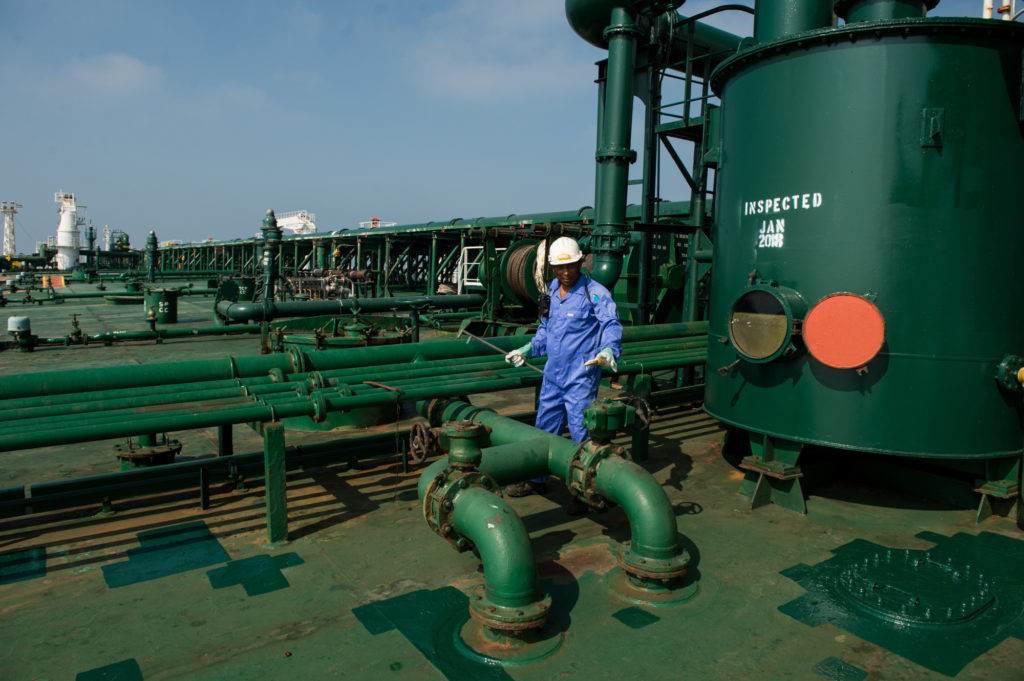
A proposed plan by the European Union, Russia and China to sidestep U.S. sanctions on Iran by using an alternative payment system won’t give its oil buyers a free pass to handle Iranian crude.
Legal sanctions experts and oil traders said the creation of a special purpose vehicle and payments channel to keep trade open with Iran, unveiled this week by EU Foreign Affairs chief Federica Mogherini, would still leave traders buying or selling crude from the Islamic Republic vulnerable to punitive actions by the U.S. Treasury Department.
“I think it is a welcome development,” Daniel Martin, a partner and sanctions expert at Holman Fenwick Willan in London, said of the EU’s alternative plan. “But oil is not the arena it is going to be tested and used first.”
Crude is the key driving force behind Iran’s economy and the Trump administration is trying to cripple the regime by reimposing sanctions, despite a deal struck in 2015 that saw the country agree to curtail its nuclear program.
Even if Iran’s customers used an alternative payment system incorporating bartering, envisioned in the proposal from the EU, Russia and China, any customers would still be vulnerable to secondary sanctions for simply buying the oil.
“I don’t think you can make out a case that a barter transaction is not a purchase,” Martin said.
Risk Premium
The only oil trading companies willing to use the proposed system would also have to be willing to take on the risk of being sanctioned themselves, Martin said.
The biggest traders, such as Vitol Group and Trafigura Group Pte Ltd., who are based in Europe, transact mostly in U.S. dollars and have operations in America and would be unwilling to take that risk.
Gunvor Group Ltd., which handles about 2.7 million barrels a day of crude and products, and opened offices in Houston and Stamford, Connecticut, last year, said it won’t be handling Iranian oil anytime soon.
“Gunvor does no trading with Iran. We comply strictly with all applicable international sanctions, and will not trade oil or products with any country, including Iran, that would consist of a violation of those sanctions,” Seth Pietras, a company spokesman, said.
Trafigura and Vitol also don’t plan to use the proposed payment channel, people familiar with the traders’ plans said.
The relatively high dollar value of crude cargoes will also make oil an unlikely product to be traded under the proposed bartering system. A supertanker with a full cargo of oil would be worth about $160 million at today’s prices.
That means some form of traditional commodity trade financing, outside of the special payments channel, would likely be necessary, even though banks and financial institutions are reluctant to support legal trade with Iran, Martin said.
The plan also wouldn’t address reputational risks for oil traders, Martin said. Those trying to use the payment system would likely face U.S. entities refusing to do business with them for handling Iran oil, even if they weren’t technically violating the U.S. sanctions.
President Donald Trump told a news conference in New York on Wednesday that he thinks his sanction will force Iran back to the negotiating table.
“Iran’s gonna come back to me and they’re gonna make a good deal,” Trump said. “They’re suffering greatly, they’re having riots in every city.”